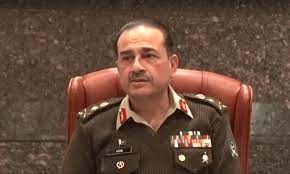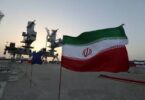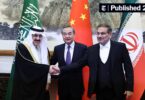Chief of Army Staff (COAS) General Asim Munir addressed the in-camera session of the Lower of the Parliament (the National Assembly) on Friday, while senior Commanders of the Pakistan Army gave a detailed overview of the current situation to the parliamentarians. According to the Army Chief, the negotiations with militants in the past helped terrorists regroup in the country.
The Security Forces are carrying out intelligence-based operations (IBOs) on a daily basis while the terrorists have no other option but to accept the writ of the state. The Army Chief categorically declared that elected representatives of the people should decide the fate of the nation, and the Army will fully back the country’s journey of growth and success.
The recent upsurge in terrorism and loss of precious lives has not only rocked the entire nation but also dispelled an unbeatable national resolve to eliminate the menace of terrorism from society.
The gravity of the situation and volume of the threat was of such a serious nature that the banned terrorist outfits not only established their stronghold in the far-flung areas but also enjoy open support from across the Durand line, which caused serious concerns among the masses and raised questions about the dealing and strategy of the previous government regarding the banned terrorist outfits.
An ever-widening political polarization and persistent economic meltdown further caused anxiety in the public regarding the writ of law and governance in the country. Although the incumbent government could not convene an All Parties Conference (APC) of all political stakeholders because of no cooperation from the opposition yet it effectively used the National Security Council (NSC) forum to mobilize the anti-terrorism infrastructure including the National Counter Terrorism Authority (NACTA), CTD and Police, while Pakistan Army has also intensified its Intelligence Based Operations (IBOs) to effectively eradicate this menace from the terrorism, hit areas in the country.
Realistically, the state and people of Pakistan had always paid a heavy price for the wrong and irrational decisions of its civilian and military leaders throughout the past that led the nation to the current economic default and meek security situation in the country. The decision of joining the Western military bloc and Ayub Khan’s invasion against democracy was the beginning of this peril while Zia-ul-Haq’s involvement in Afghan jihad and Musharraf’s alliance in the US-led war on terrorism were crucial steps in making up for this catastrophe in the country.
Surprisingly, our valiant security forces and the people of Pakistan had defeated the menace of terrorism a few years back but purblind Pakistani leaders and so-called jihadi strategists reenvisioned this monster after the Taliban take over in Afghanistan.
Pakistani rulers and national institutions mostly betrayed the nation and lied to the public after trading national interests and striking secret deals with foreign powers, whereas all that had been done in the garb of national interest and security of the country. However, neither the national interest nor the sovereignty of the country could be safeguarded by the end of the day.
Over the years, Pakistan’s national policy remained vague and frenzy regarding sensitive issues relating to national security. The state always preferred dialogue with religious fanatics who waged open war against the nation but remained determined on the military solution to the Balochistan issue. Once considered to be a security risk, PTM is a partner in the ruling coalition government while banned MQM London and Altaf Hussain might play any role in future setup in the country.
There have been talks regarding Pakistan’s hot pursuit of terrorists inside Afghan territory that resembles India’s policy of surgical strikes and is likely to be counterproductive strategically and at the diplomatic level. Hence, Pakistan first needs to bring its house in order, by introducing pivotal changes in the national policy-making process of the country.
Civil and Military bureaucracy lacks vision and always chooses the tactical nature of transactional reciprocatory relationships instead of defending the long-term strategic interests of the country. Therefore, political leadership must take lead and define the long-term domestic and foreign policy goal while using institutional and scholarly inputs from relevant quarters, so the nation comes out of recurrent aftershocks of wrong choices of the past leaders and moves toward peace and stability in the future.







